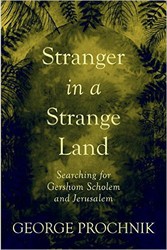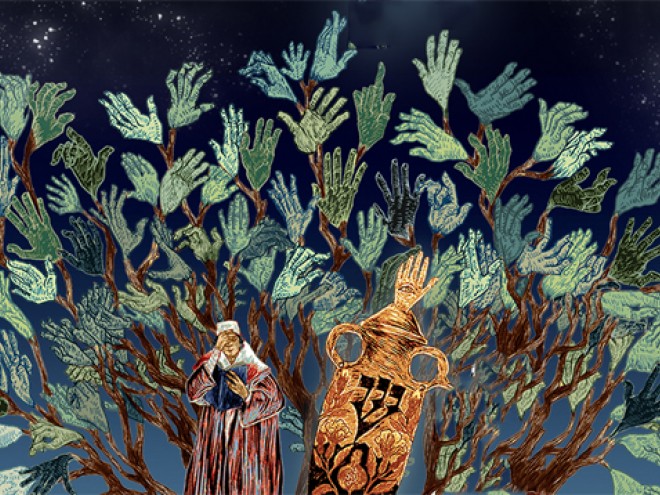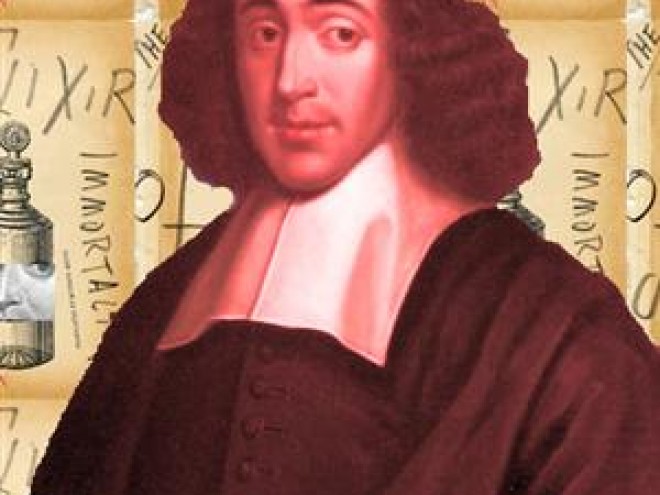
Earlier this week, George Prochnik wrote about when Gershom Scholem discovered Zionism. With the release of his new book Stranger in a Strange Land: Searching for Gershom Scholem in Jerusalem, George is guest blogging for the Jewish Book Council all week as part of the Visiting Scribe series here on The ProsenPeople.
Not long after embracing the embryonic Zionist movement, Gershom Scholem discovered the Zohar, often considered the core text of Jewish mysticism. Kabbalah proved to be a kind of revelation for Scholem — one that grew in intensity as he went deeper in his exploration of mystical writings. This revelation was twofold.
First, in Scholem’s estimation, unlike the arbiters of mainstream Judaism, the authors of the great works of Kabbalah had undertaken a profound, creative engagement with the historical tragedies of Jewish history in exile. Kabbalah, from his perspective, was, indeed, nothing less thana kind of mythological key to understanding human misery in general, and the Jewish expulsion from Jerusalem and then Spain in particular. By creating a powerful symbolic language that resonated with the struggles of ordinary men and women, the Kabbalists gave meaning and purpose to the anguish of historical trauma.
To make sense of the human predicament, Kabbalah had dramatically expanded the concept of evil, projecting it beyond the human failing of sin into the very structure of the cosmos. Aspects of God Himself took on the character of evil when they were thrown out of balance by events in the primordial universe that predated the creation of humanity. Not only did Kabbalah provide a kind of visionary explanation for why the exile had occurred and why Jewish suffering persisted, the Kabbalah intertwined the roles of God and man so that humanity was assigned a dynamic role in rectifying what had gone awry in reality. Through prayer, ritual and a home life conducted with the profound ethical attention enjoined by Torah, man could now help God “fix” creation. The term popularized in Kabbalah, tikkun olam, meaning repairing or healing the world, became shorthand for the cosmic mission humankind was charged with.
Second, along with its strictly intellectual contributions, Scholem saw mysticism as a stage in the evolution of Jewish self-consciousness that made political action in the here and now appear possible. From Scholem’s perspective, mainstream Judaism and nineteenth century historiography alike were essentially quiescent projects, concerned with the conservation of the people’s age-old spiritual legacy. Whatever revolutionary principles might be enshrined in the idea of the Messiah’s advent, for all practical purposes the Messiah’s arrival was permanently on hold.
For several hundred years after the birth of those schools of mystical thought in early medieval France that Scholem designated as the first centers of Kabbalah proper, the Kabbalists, no less than their non-mystical brethren, lived quiet lives of study, prayer and writing. Their radicalism was a thought experiment, not an action. While they might have declared that their prayers were part of a titanic battle to wrest the sparks of holiness away from the realm of evil and so trigger the start of a larger cosmic revolution that would also end the Jews’ exile, an outsider observing the kabbalists in their famous sixteenth century center of Safed would have found little discernible difference between their behavior and that of other Orthodox Jews.
But in the mid-seventeenth century, a mystical false messiah by the name of Sabbatai Sevi arose in the Ottoman Empire and became a seismic phenomenon, galvanizing Jewish congregations across the Levant and huge swaths of Europe. Entire Jewish communities in far-flung towns and villages began the process of uprooting themselves to follow Sevi and help actualize the prophecy he delivered of restoring Jewish sovereignty over the Holy Land and ushering in the era of salvation.
Scholem argued that the ideas of liberation fueling Sabbatai Sevi’s movement, combined with the communal effort to wrest physical control of Jewish fate by becoming active participants in the messianic revolution, planted the seeds for the Jews’ entry into modernity. Although Sabbatai Sevi’s movement unraveled with his conversion to Islam under pressure from the Ottoman Sultan, it succeeded in propelling the dream of the Jews gaining agency over their own destiny from the theoretical plane into the concrete realm of history. Scholem saw the legacy of Sabbatai Sevi embodied in certain figures from Jewish backgrounds who played important roles in the French Revolution — a number of whom were literal descendants of the Sabbateans — as well as in the rise of the Reform movement, which had likewise been partly conceived by influential figures in Sevi’s theological lineage.
Ultimately, Scholem felt that in Kabbalah he’d identified a neglected, explosive element in Jewish theology that could inspire new kinds of real-world ambitions for the Jewish people. As he wrote in one essay, “There is such a thing as a treasure hunt within tradition, which creates a living relationship to which much of what is best in current Jewish self-awareness is indebted.”
Jewish history retold in the light of Kabbalah could potentially empower Jews to act on their Judaism as a living principle.



